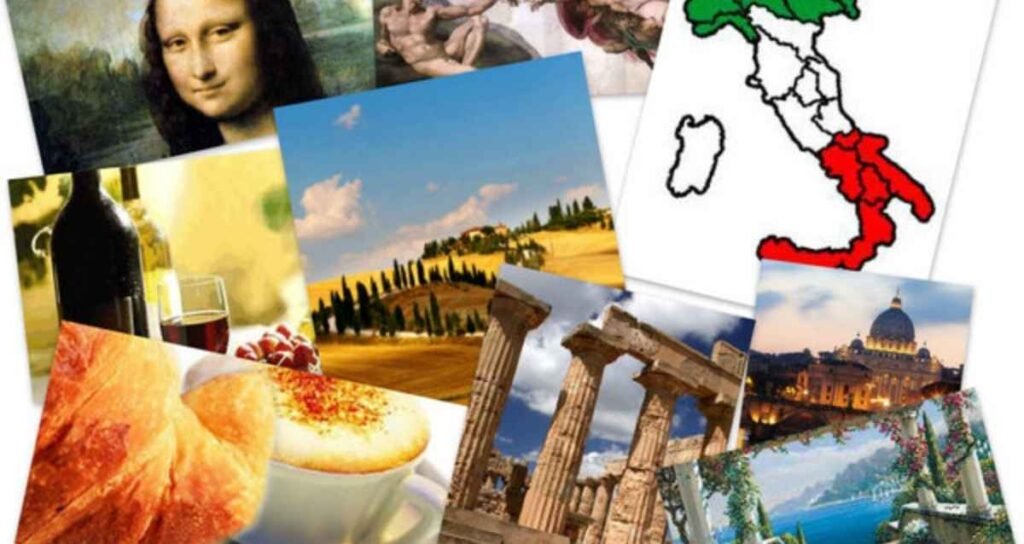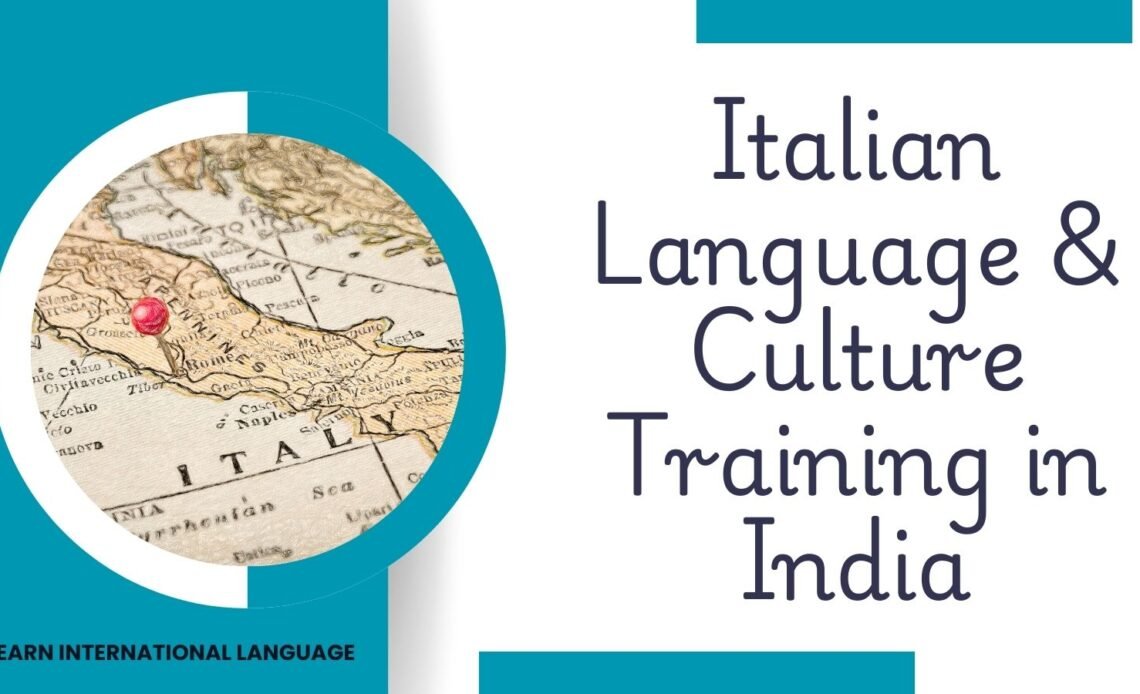Italy is renowned for its vibrant culture, stunning landscapes, and delicious cuisine. But what truly makes Italy unique is its language—a melody of vowels, rich in history and deeply connected to the country’s culture. For beginners, learning the Italian language is not just about mastering vocabulary and grammar; it’s about embracing a rich heritage and connecting with the Italian way of life. In this guide, we’ll explore the importance of learning Italian and how understanding Italian language & culture can enhance your language-learning journey.
Want to learn more about Italian language and culture? Contact us here for personalized guidance!
Why Learn the Italian Language & Culture?
Learning Italian is more than mastering a new language — it’s a doorway into Italy’s rich history, art, music, and culinary traditions. Italian is spoken not only in Italy but also in parts of Switzerland and by millions worldwide. It opens opportunities in fashion, design, tourism, and international business. By understanding Italian culture, you also connect with centuries of literature and heritage that shaped Western civilization.
1. Italian is the Key to Understanding Italian Culture
Learning Italian opens the door to Italy’s rich history, art, music, and traditions. From the Renaissance to modern-day Italian cinema, understanding the Italian language allows you to appreciate these cultural treasures in their original form. By learning the language, you’ll connect more deeply with Italy’s cultural nuances—whether it’s understanding the lyrics of an opera or reading classic literature like Dante’s Divine Comedy.
2. The Influence of Italian Art and Architecture
Italy is home to some of the world’s greatest masterpieces, including Michelangelo’s David, the Sistine Chapel, and the architecture of Rome, Florence, and Venice. Many of these works have been described and interpreted in Italian. Understanding the Italian language allows you to enjoy these masterpieces in their historical and cultural context, enriching your travel experience and deepening your appreciation of Italy’s artistic legacy.
Looking to explore more about Italian culture and language? Contact us for more details!

Italian Language & Culture
3. Italian Cuisine: A Journey for Your Senses
Italian cuisine is beloved worldwide, from pasta to pizza and everything in between. But to truly understand the flavors, you need to connect with the language. Italian food is not just about the ingredients; it’s about the culture, the tradition, and the passion behind each dish. By learning Italian, you’ll gain a deeper understanding of the country’s culinary heritage and even learn how to pronounce Italian dish names correctly when dining out.
4. Italian Festivals and Traditions
Italy is known for its vibrant festivals and cultural traditions. From Venice Carnival to Siena’s Palio horse race, Italy’s festivals are deeply tied to its cultural identity. By speaking Italian, you’ll be able to engage in these events more fully, connect with locals, and appreciate the stories and legends behind them.
5. Travel in Italy: A Richer Experience
When you learn Italian, your travel experience in Italy becomes exponentially richer. Instead of just being a tourist, you’ll have the opportunity to interact with locals, explore off-the-beaten-path towns, and enjoy authentic Italian experiences. Whether you’re in Rome, Milan, or a small village in Tuscany, speaking the language will allow you to get the most out of your trip.
Ready to start learning Italian? Contact us today and start your journey toward fluency! Get in touch here.
Learning Italian: Key Tips for Beginners
Start with the basics — greetings, common phrases, and pronunciation. Listen to Italian podcasts or songs daily to train your ear for rhythm and intonation. Practice speaking out loud, even if you’re alone, and don’t fear mistakes. Use flashcards or apps like Duolingo or Babbel for vocabulary building. Most importantly, stay consistent — small, daily study sessions are more effective than long, irregular ones.
1. Start with Basic Phrases
As a beginner, learning essential Italian phrases like “Ciao!” (Hello), “Grazie!” (Thank you), and “Dove si trova il bagno?” (Where is the bathroom?) is a great way to get started. These phrases will help you navigate basic conversations and provide a solid foundation for more advanced learning.
2. Immerse Yourself in the Language
One of the best ways to learn Italian is through immersion. Watch Italian movies, listen to Italian music, or follow Italian-speaking social media accounts. This exposure will help you get accustomed to the rhythm and pronunciation of the language, making it easier to speak and understand.
Need guidance on learning Italian? Contact us for expert tips and resources!
3. Practice with Native Speakers
Speaking with native Italian speakers is essential for improving your fluency. You can join online communities or language exchange platforms, attend Italian language meetups, or take private lessons with native speakers. This will help you gain confidence in your conversational skills and improve your accent.
4. Learn Italian Grammar Slowly
While Italian grammar can seem overwhelming at first, don’t rush through it. Start with basic verb conjugations, noun-adjective agreements, and common sentence structures. As you grow more comfortable with the language, you can dive into more complex grammatical concepts.
5. Stay Consistent and Patient
Language learning requires time and patience, so set small, achievable goals. Consistent practice—whether it’s learning new words, listening to Italian podcasts, or practicing speaking—will help you improve steadily.

Italian Language & Culture
Summary: Begin Your Italian Language & Culture Journey Today!
Learning the Italian language is a gateway to understanding Italy’s beautiful culture. From its world-class art and cuisine to its ancient traditions and festivals, the Italian language is deeply connected to Italy’s history and way of life. By embracing both the language and culture, you’ll enrich your travels, gain new perspectives, and enjoy a more meaningful connection with Italy.
Ready to explore Italian culture and start your language journey? Contact us here for personalized advice and tips!
FAQs About Italian Language & Culture
1. How can learning Italian improve my understanding of Italian culture?
By learning the language, you’ll gain direct access to Italy’s rich cultural history, from its art and architecture to its food and festivals. Understanding the language enhances your connection to Italy’s heritage.
2. Is it hard to learn Italian as a beginner?
Italian is relatively easy for English speakers due to its similar alphabet and many shared vocabulary words. Beginners can start learning basic phrases and build their way up over time.
3. What are some popular Italian festivals?
Italy is famous for its festivals, such as the Venice Carnival, Siena’s Palio, the Florence Arts Festival, and many local celebrations, which are a big part of Italian culture.
4. How can I practice Italian outside of the classroom?
Immersing yourself in Italian media like movies, books, music, and podcasts is a great way to practice. You can also practice with native speakers through language exchange platforms.
5. What are the benefits of learning Italian for travel?
Learning Italian will enhance your travel experience by allowing you to interact with locals, understand cultural context, and feel more connected to Italy during your visit.
Start your journey today by learning Italian language and culture—the key to a richer, more fulfilling experience in Italy. Contact us for tailored lessons and resources to guide you through your language-learning adventure! Get in touch here.


